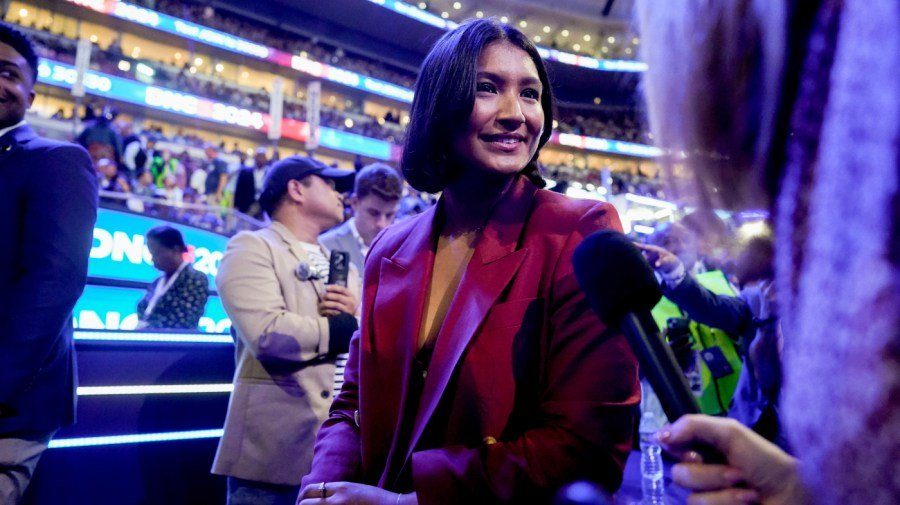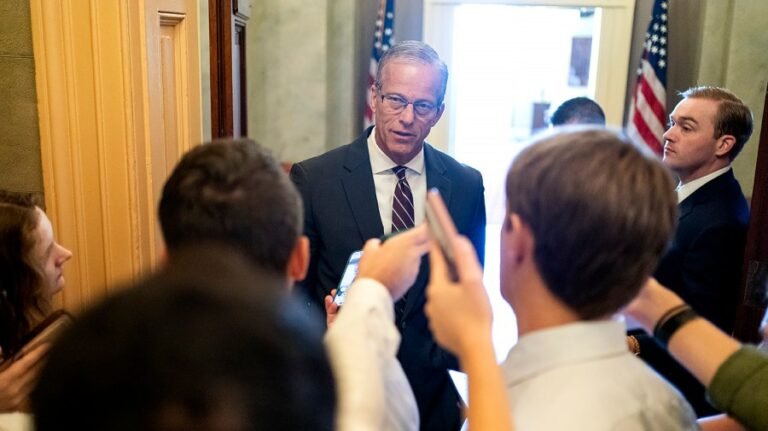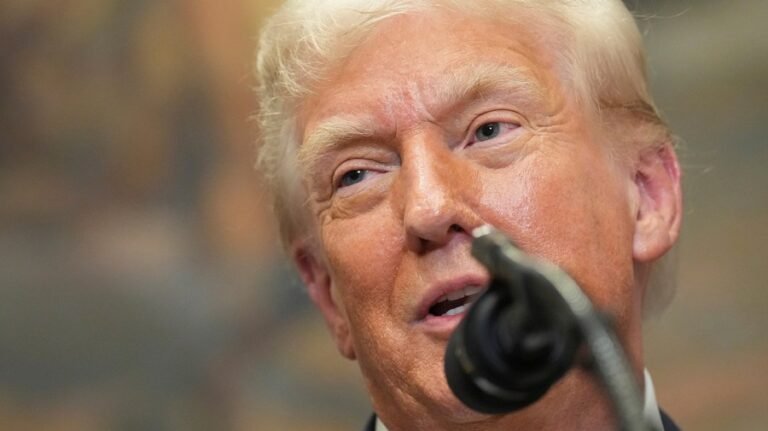
The Democratic Party is having a moment with influencers. Some run campaigns. Some headline rallies. Some just post in support of candidates.
But across the board, the line between digital celebrity and political leadership is blurring — and not always in good ways.
That disconnect became painfully clear in Arizona earlier this month. Deja Foxx, a 25-year-old with a massive online platform and national media résumé, lost her congressional primary by more than 40 points. Despite months of buzz and glowing coverage, she barely made a dent in her home district.
Her opponent, Adelita Grijalva, a longtime local elected official, won decisively despite a much less flashy campaign.
Foxx’s loss wasn’t about her age or ideology. It was about how, despite being an influencer, she brought little that distinguished her as a candidate. Her policy positions were nearly identical to Grijalva’s.
What she offered was branding, not substance — good production values, a strong digital narrative and national attention that had little to do with the voters she hoped to represent. But there was no core argument for why she, rather than a trusted local leader, should be in Congress.
Foxx isn’t alone in mistaking being an influencer for real-world influence. In 2024, Vice President Kamala Harris’s campaign leaned heavily into influencer culture. Its strategy, pairing digital surrogates with sleek social media content, was bold, and to her campaign’s credit, it was backed by real field investment and state-level infrastructure.
Still, too often, the messaging looped inside an echo chamber. Harris was speaking to audiences that already agreed with her. That’s a dynamic familiar to anyone who has followed Democratic-aligned influencers: There’s a lot of affirmation and not much persuasion.
Now consider Zohran Mamdani in New York. Mamdani is young, left-wing and internet-savvy. But his win wasn’t a function of style — it was a triumph of substance.
His campaign wasn’t built on virality alone but also on housing policy, grassroots work and persuasive messaging. He didn’t just energize the base, he flipped voters — even some who had voted for Trump in 2024.
That’s the part too many Democrats miss: Mamdani didn’t just preach — he changed minds.
He also ran on ideas that were meaningfully different. Unlike Foxx, who echoed her opponent’s positions, Mamdani ran on an original, issue-specific agenda rooted in New York’s affordability crisis. His platform was useful, tangible and local. Barriers to implementation aside, that is why his message resonated.
The difference here is about more than tone or talent — it’s about orientation. Mamdani looked outward, asking: “What do my neighbors need, and how can I explain my vision in ways that meet them where they are?”
Foxx and much of the influencer left, in contrast, look inward: “What will get likes? What fits the dominant online narrative? What confirms my audience’s values?”
That echo chamber, while comfortable, is a trap. It rewards certainty over curiosity and performance over persuasion. And if Democrats aren’t careful, it will keep them recycling the same conversations, each time with diminishing returns.
None of this is an argument against digital politics. Democrats should continue investing in online talent. The party is stronger when it reflects the voices and aesthetics of a younger, more diverse electorate.
However, influence alone doesn’t make someone a viable candidate or a leading political voice. A good story, a large following and an eye for viral content are not enough to replace organizing, coalition-building and policy fluency.
Foxx didn’t lose because she was too young or too online. She lost because she ran a campaign of aesthetics without an argument, and voters noticed.
Influencers can play valuable roles — raising awareness, reaching younger audiences, translating policy into digestible content. Still, a follower count is not a qualification for office, and Democrats should stop pretending that it is.
Kaivan Shroff was a 2024 DNC presidential delegate and worked as a digital organizer on Hillary Clinton’s 2016 campaign. He is an attorney and senior advisor to the Institute for Education, a Washington non-profit.


